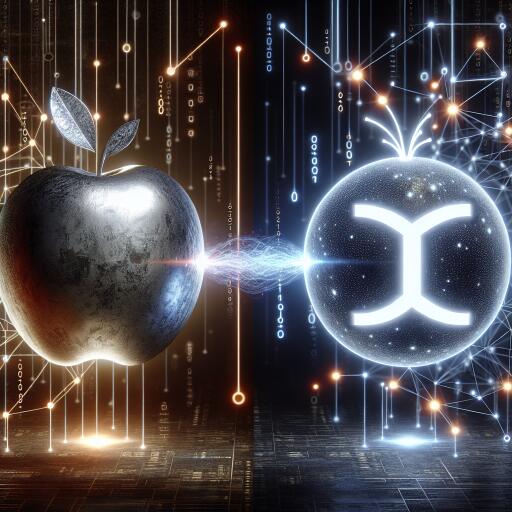Apple Intelligence vs. Google Gemini: A Battle of AI Titans
In the rapidly evolving world of artificial intelligence, two giants are poised to redefine our interaction with technology: Google Gemini and Apple Intelligence. Moving beyond the capabilities of OpenAI’s GPT-4o model, these new entrants from Google and Apple are setting the stage for an exciting showdown.
Both Apple and Google are promising AI models that will transform the way we interact with our myriad of devices, from smartphones and tablets to laptops and smartwatches. The promise of enhanced productivity and newfound free time is tantalizing, but which AI model truly holds the edge? Is it worth investing in the Apple ecosystem for Apple Intelligence, or does Google Gemini present a compelling reason to lean towards Android or Chrome devices?
As both Apple Intelligence and Google Gemini prepare for their full launch, we delve into what sets them apart, considering cost, language support, device compatibility, and features to try and determine which AI might come out on top.
Cost Comparison: An Evolving Landscape
At present, the cost structure of both AI models is in flux. Google has launched Gemini with a free tier and a premium version, Gemini Advanced, at $19.99/month, offering extensive features like advanced model access, Google One storage, and integration with Google’s suite of apps.
Apple Intelligence, on the other hand, is slated to be free initially, but speculations of a future subscription model akin to ‘Apple Intelligence+’ suggest this could change. Until both services are fully operational with their respective payment plans fully unveiled, determining a winner on cost is premature.
Language Support: A Clear Current Victor
When it comes to language support, Google Gemini leaps ahead, offering compatibility with over 40 languages at its launch. Conversely, Apple Intelligence has debuted supporting only U.S. English, with promises of more languages to come. For those seeking multilingual AI assistance, Google Gemini currently stands as the uncontested choice.
Device Compatibility: Broad Reach vs. Ecosystem Integration
Google’s approach with Gemini allows for a broad spectrum of compatibility, extending its AI services to almost all modern Android and iOS devices. Apple Intelligence, predictably, remains exclusive to newer Apple devices. For users deeply entrenched in the Apple ecosystem, this limitation may be inconsequential, but Google Gemini’s inclusivity is a boon for those with mixed-device environments.
Features and Capabilities: A Close Contest
Both AI models promise impressive capabilities, from enhancing writing tasks to organizing schedules and beyond. While Apple Intelligence may benefit from the seamless integration of the Apple ecosystem, particularly in cross-app communication, the full extent of each AI’s capabilities will only be clear upon their official releases. Thus, a definitive comparison on features remains to be seen.
Privacy Concerns: An Unsettled Battle
Apple boasts a strong privacy record, which may extend to Apple Intelligence’s operations, particularly with its device and data center processing split. Google’s approach with Gemini, especially outside the Pixel series, includes candid advisories about data sharing. However, without clear, in-practice privacy outlines from both companies, declaring a winner in this domain is premature.
Looking Ahead: The Potential for Evolution
As the launch of Apple Intelligence draws near, the technology community eagerly anticipates how it will compare to Google Gemini’s already unveiled capabilities. With Google continuing to refine and expand Gemini, the competition between these AI models promises not only to enhance our digital interactions but also to push the boundaries of what we expect from artificial intelligence.
While Apple Intelligence’s tight-knit ecosystem could offer unparalleled integration and convenience for its users, Google Gemini’s expansive device support and multilingual capabilities make it a formidable contender for a wider audience. With further updates and real-world use, the best AI model will undoubtedly emerge, tailored to the diverse needs and preferences of users worldwide.
Stay tuned as we continue to monitor the rollout of Apple Intelligence, ready to revisit this comparison with the latest insights and experiences from both AI giants.










